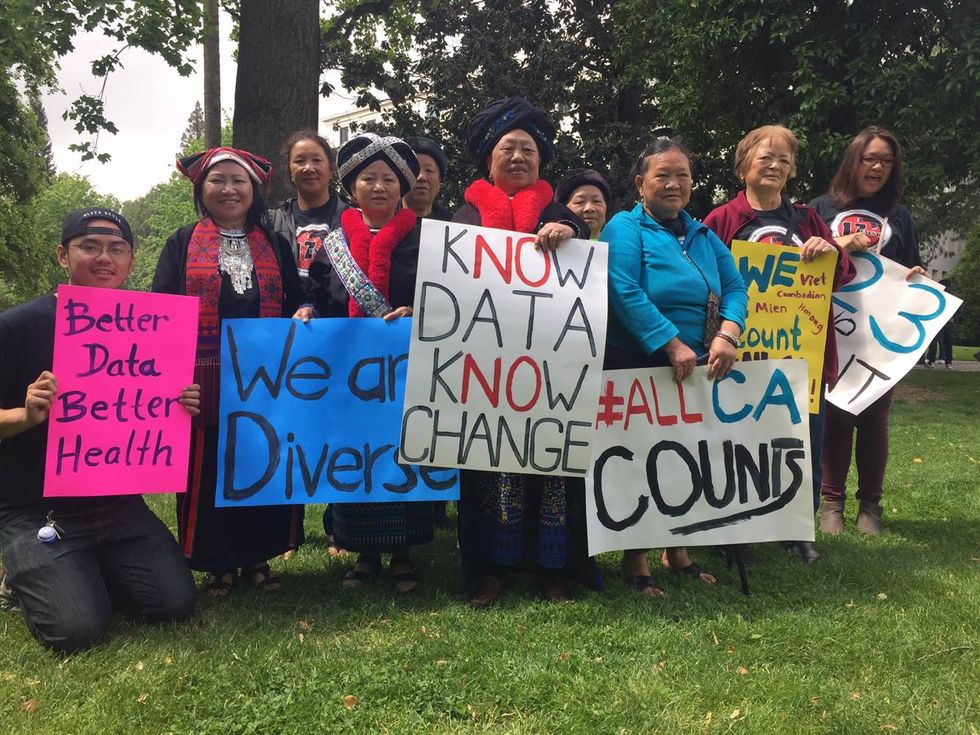In case you missed it, here are parts one, two and three of this series.
“It’s maddening.”
AB-1726 sought to rectify educational differences between different Asian American ethnic groups within the higher education system. The belief that Asian Americans achieved so highly in academics can be traced back to the model minority stereotype. In other words, the belief that Asian Americans are good at academics by virtue of having Asian ancestry. Time decided to do a feature article on it for their August 31, 1987 issue. The article spoke highly of such Asian American groups, espousing their academic achievement despite the hardships their parents had to face.
However, data collected by AAPI Data seems to belie the point. Just 37 percent of Hmong Americans have a post-high school degree, compared with 65 percent of Chinese Americans and 76 percent of Filipino Americans. The differences in education among these Asian and Pacific Islander groups are, according to AB-1726, “lost in the data of the ‘Asian’” category.
Yang’s journey is a case in point. She is a graduate of the University of California, Berkeley. Asian Americans form either a plurality or the majority in many UC and CSU campuses. For many of these students, hard work and high marks in high school allowed them to make the cut. Yet, the success isn’t real for all API groups. Hmong Americans, like Yang, are less likely to graduate from a four-year institution than their API counterparts. Thus, she felt the pressure to succeed early on in her undergraduate career.
“It felt really lonely and isolating, and that has a really large impact on academic performance,” Yang said. “Because it becomes this emotional thing.”
The pressure to perform well became too much for Yang. She got placed on academic probation, one step away from disqualification from an academic program, expulsion from the university or both. For Yang and many Asian American students, stories like these are common. Such pressure affects their academic performance and their mental health suffers because of it. Like all UC and CSU applicants, Yang was presented with the option to voluntarily fill an ethnicity survey when she applied.
Hmong wasn’t on that list. Instead, data was aggregated under “Asian.”
“I was finding out was that a lot of other Southeast Asians either dropped out of higher education or were also on academic probation,” she continued. “So if the school is not collecting this data, then there’s no way that people would really invest in resources and services to target retention for Southeast Asian students.”
Pacific Islander students feel the pressure as well. Richard Chang, director of policy for Empowering Pacific Islander Communities (EPIC) and part Native Hawaiian himself, realized that disaggregation was needed in education for Pacific Islanders and Native Hawaiians. According to Chang, aggregated educational data hid the struggles of Pacific Islander and Native Hawaiian students. In some cases, because of aggregated data, Native Hawaiian students have been denied scholarships under Chang’s watch due to their aggregation under the Asian/Pacific Islander label.
“When Pacific Islander students filed applications [for scholarships], they have actually been rejected because they were told the API community did not fit the definition of underserved,” Chang explained. “These are people that need their fair share of resources when the API label continues to render them invisible.”
Chang himself became victim to such educational stereotypes growing up.
“I would often encounter other parents growing up who would assume I was on the football team,” Chang recalled. “I remember going to some parent-student conference and all the parents would ask [my father] ‘What position does your son play?’ And he says "Oh he plays violin." And it’s maddening to see people think that’s all you’re capable of.”
Look for more parts of the series in the coming weeks.
















